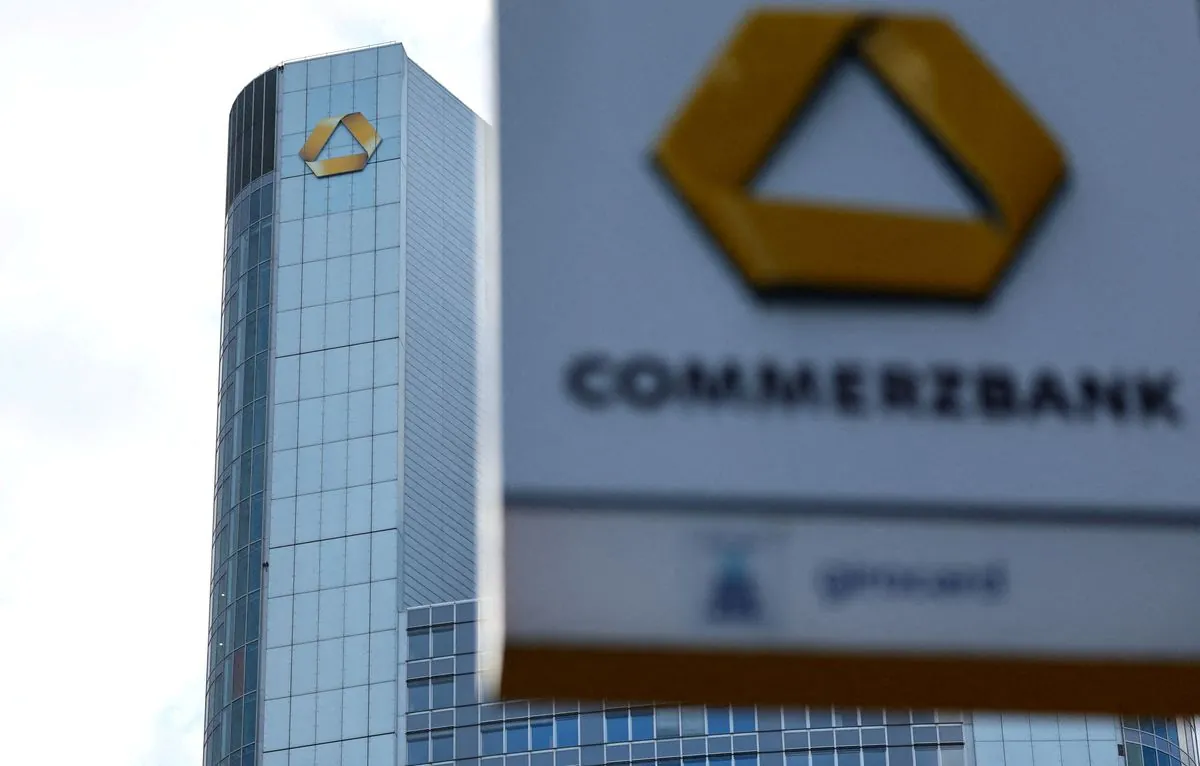In a developing financial saga, UniCredit's aggressive pursuit of Commerzbank has sparked controversy and criticism from various German stakeholders. Despite facing opposition from high-ranking officials, including the German Chancellor, finance minister, and trade unions, investors appear optimistic about the potential takeover, as evidenced by a 20% increase in Commerzbank's share price since UniCredit's initial move.
The Italian banking giant, led by CEO Andrea Orcel, has acquired a 21% stake in Commerzbank, including derivatives. This bold move has intensified the debate surrounding the future of Germany's second-largest bank by total assets. Commerzbank, founded in 1870, has a rich history but has struggled in recent years to maintain competitive returns.
Commerzbank's financial performance remains a significant concern. The bank aims for a minimum return on tangible equity (ROTE) of 8% this year, falling short of the estimated 10% cost of equity. Analysts project an even lower ROTE of 7.8% for 2024, highlighting the challenges faced by the Frankfurt-based lender.
Newly appointed CEO Bettina Orlopp faces the daunting task of crafting a convincing standalone strategy for Commerzbank. Potential options include cost-cutting measures to boost returns and offset the impact of falling interest rates. However, Commerzbank's operating expenses currently consume 60% of its revenue, significantly higher than the 47% average for the Euro STOXX Banks Index.
Implementing aggressive cost cuts presents two main challenges. Firstly, it weakens the argument against UniCredit's takeover bid, which cites potential job losses as a primary concern. Secondly, Commerzbank's high expense ratio may be indicative of a lack of scale in Germany's fragmented banking market, where large domestic banks hold only 15% of retail deposits.
Alternative strategies for Commerzbank include pursuing acquisitions to increase scale. However, potential targets like OLB and Hamburg Commercial Bank would have minimal impact, representing only 11% of Commerzbank's total assets. A merger with Deutsche Bank could result in even more significant job cuts than a UniCredit deal and would still lead to a loss of independence.
The German banking sector, known for its "three-pillar" system of private, public, and cooperative banks, presents unique challenges for consolidation. Commerzbank, with its network of over 790 branches across Germany, plays a crucial role in this landscape.
Olaf Scholz, the German Chancellor, has labeled UniCredit's pursuit as "an unfriendly attack," emphasizing the government's opposition to hostile takeovers in the banking sector. The German government still holds a 15.6% stake in Commerzbank, a remnant of the 2008-2009 financial crisis bailout.
UniCredit, Italy's largest bank by assets with operations in 13 European countries, sees potential in expanding its German presence beyond its existing HypoVereinsbank subsidiary. The bank's headquarters in Milan contrast with Commerzbank's iconic tower in Frankfurt, the tallest building in the city.
As the situation unfolds, regulatory hurdles loom large. The European Central Bank must approve any significant stake acquisition in a Eurozone bank, adding another layer of complexity to UniCredit's ambitions.
"We could walk away absent the right level of support from all stakeholders."
This statement underscores the delicate balance UniCredit must strike in its pursuit of Commerzbank. As both banks prepare for potential European Banking Authority stress tests, the outcome of this takeover bid remains uncertain. The coming months will likely see intense negotiations and strategic maneuvers as Commerzbank seeks to chart its course in an increasingly challenging banking landscape.
